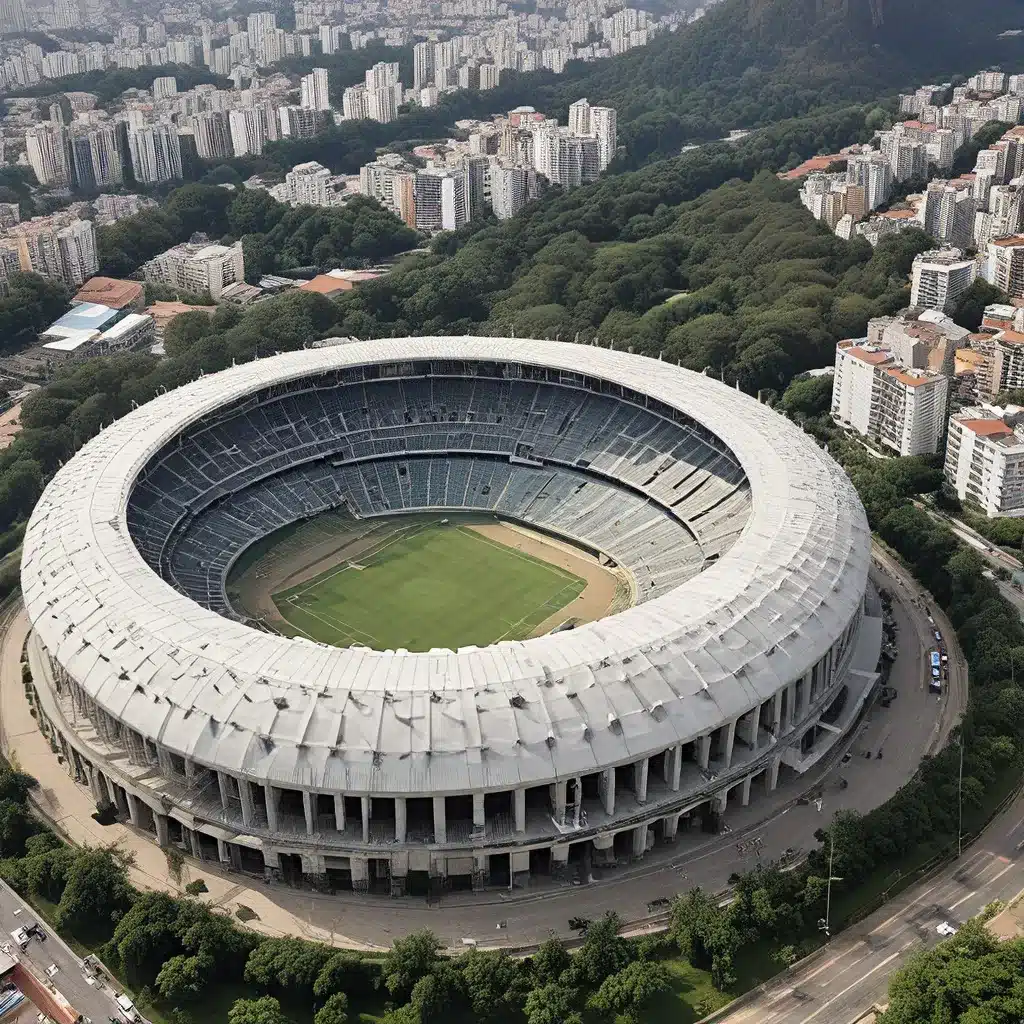
The Iconic Stadium
The Maracanã stadium, located in the heart of Rio de Janeiro, Brazil, is a true icon of global football (soccer) culture. This legendary venue has witnessed some of the most thrilling and momentous events in the sport’s history, earning it the reputation as the “Temple of the Beautiful Game.” From hosting the 1950 World Cup final to serving as the centerpiece of the 2014 World Cup and 2016 Olympic Games, the Maracanã has been a stage for footballing greatness, capturing the imagination of fans worldwide.
Constructed in the late 1940s, the Maracanã was designed by the renowned Brazilian architects Miguel Feldman, Pedro Paulo Bernardes Bastos, and Waldir Ramos. The stadium’s impressive size and grandeur were a reflection of Brazil’s ambition to showcase its football prowess on the international stage. With a seating capacity of over 200,000 at its peak, the Maracanã was once the largest football stadium in the world, a testament to the country’s passionate love for the sport.
The Cauldron of Emotions
The Maracanã has been the scene of numerous iconic moments that have etched it into the collective memory of football fans. The most memorable perhaps was the 1950 World Cup final, where the host nation, Brazil, suffered a heartbreaking 2-1 defeat to Uruguay, leaving the home crowd in shock and despair. This result, known as the “Maracanazo,” is considered one of the biggest upsets in the history of the sport.
However, the Maracanã has also witnessed many joyous occasions. In the 1958 World Cup, the legendary Pelé scored his first-ever World Cup goal at the stadium, leading Brazil to their first triumph in the tournament. The Maracanã has also been the stage for countless domestic and international club matches, with the Flamengo and Fluminense football clubs enjoying a fierce rivalry within its walls.
Modernization and Transformation
Over the years, the Maracanã has undergone several renovations and transformations to keep up with the evolving demands of modern football. In the lead-up to the 2014 World Cup, the stadium underwent a major overhaul, reducing its seating capacity to around 78,000 and incorporating state-of-the-art facilities and amenities. The renovations were not without controversy, as they were plagued by cost overruns, delays, and concerns over the displacement of local residents.
Despite these challenges, the Maracanã emerged as a gleaming, refurbished venue that has continued to captivate football enthusiasts. The stadium’s iconic architecture, with its distinctive concrete and glass design, has become an integral part of Rio’s cityscape, serving as a landmark that symbolizes the city’s passion for the sport.
Beyond Football: The Maracanã’s Diverse Offerings
The Maracanã’s significance extends far beyond just football. The stadium has hosted a wide range of events, from music concerts featuring international superstars to religious gatherings and political rallies. In recent years, the Maracanã has also become a popular destination for tourists, offering guided tours and the opportunity to explore the stadium’s rich history and behind-the-scenes areas.
Moreover, the Maracanã has played a crucial role in shaping the local culture and community in Rio de Janeiro. The stadium’s proximity to various neighborhoods has fostered a sense of camaraderie among football fans, with pre-match rituals and post-match celebrations becoming an integral part of the city’s social fabric.
The Enduring Legacy of the Maracanã
The Maracanã’s impact on the world of football is undeniable. It has hosted some of the sport’s most iconic moments, witnessed the rise of legendary players, and captured the hearts of millions of fans worldwide. As the stadium continues to evolve and adapt to the changing landscape of the game, it remains a testament to Brazil’s unwavering passion for the beautiful game.
For those seeking to explore the rich history and cultural significance of the Maracanã, the stadium offers a unique opportunity to immerse themselves in the spirit of the game and the vibrant energy of Rio de Janeiro. The Maracanã’s enduring legacy is a testament to the power of sports to unite people, transcend borders, and inspire generations to come.

